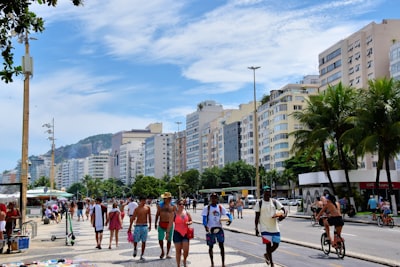Will Rio de Janeiro Become the BRICS Diplomatic Capital? The Race for the Permanent Headquarters Explained
The global spotlight is turning to Rio de Janeiro, as the iconic Brazilian city lays out a bold proposal to host the first-ever permanent headquarters for the influential economic bloc, BRICS. As the group expands its influence and membership, the debate over establishing an official BRICS headquarters raises crucial questions: What would this mean for global governance, emerging economies, and Brazil’s international role? Here’s what you need to know — and why it matters now more than ever.
What is BRICS? Why Does a Permanent Headquarters Matter?
BRICS – an acronym for Brazil, Russia, India, China, South Africa, and now including Egypt, Ethiopia, Indonesia, Iran, Saudi Arabia, and the UAE – represents more than 46% of the world’s population and a staggering 37% of global GDP. Yet, for all its economic muscle, BRICS remains a unique international group: it commands influence without a central location, permanent secretariat, or unified diplomatic corps.
A headquarters isn’t just a building; it signals organizational maturity, deeper institutionalization, and greater visibility in world affairs. As BRICS seeks a more active role in shaping global governance and economic cooperation, choosing a diplomatic epicenter is a logical next step.
Rio’s Bid: Why Brazil Wants the BRICS Headquarters
Rio de Janeiro’s mayor, Eduardo Paes, presented the city’s official bid following the 2025 BRICS summit, offering the historic Brazilian Jockey Club building as the bloc’s home. Here’s why Rio is making the case:
- Symbolism: Brazil is a founding BRICS member and a leading voice for the Global South.
- Strategic Location: Rio offers diplomatic, economic, and logistical advantages in South America.
- Iconic Venue: The Jockey Club, designed by Lúcio Costa (of Brasília fame), boasts modernist architecture ready for international attention after a planned $18 million refurbishment.
- Government Support: President Luiz Inácio Lula da Silva backs the project, underlining Brazil’s intent to lead on the global stage.
Who Else Could Host? The Global Stakes in the BRICS Headquarters Race
With BRICS enlarging its membership, competition for the headquarters may heat up. Here are potential contenders:
- China (Shanghai/Beijing): BRICS Bank HQ is already in Shanghai, making China an economic heavyweight.
- India (New Delhi): As a major democracy with global ambitions, India may make a case.
- UAE (Dubai/Abu Dhabi): Geopolitically central and with world-class infrastructure.
- South Africa (Johannesburg): Africa’s diplomatic leader and founding BRICS nation.
The city selected will send a strong message about BRICS’ priorities: South-South solidarity, emerging market leadership, or strategic centrality?
How Would a BRICS Headquarters Shape World Politics?
Establishing a diplomatic HQ could:
- Facilitate dialogue and smoother cooperation on trade, security, and development.
- Amplify BRICS’ voice in multilateral organizations like the UN, IMF, and World Bank.
- Offer new opportunities for member states to exercise collective influence on issues such as climate change, digital infrastructure, and multipolar governance.
The Future of BRICS: Challenges and Opportunities
While a BRICS headquarters in Rio de Janeiro could boost Brazil’s international profile and regional influence, the project faces challenges:
- Internal differences among diverse member states on foreign policy, governance, and economic models.
- External pressures from Western-led institutions wary of rising multipolarity.
- Funding and logistics required for renovation and maintenance of a headquarters, especially in a highly symbolic historic building.
Whatever the outcome, the headquarters debate highlights the bloc’s growing ambition to shape world affairs from the perspective of the Global South.
Frequently Asked Questions (FAQ)
Q: What is BRICS’ main purpose?
A: BRICS was founded to promote economic cooperation, inclusive development, and political dialogue among major emerging economies.
Q: Does BRICS currently have a headquarters?
A: No, BRICS has operated without a formal headquarters. The New Development Bank is based in Shanghai, but there’s no dedicated diplomatic hub.
Q: Why choose Rio de Janeiro for the BRICS HQ?
A: Rio is offering an iconic location, government support, and a strong legacy as a founding BRICS member from the Global South.
Q: What impact could a headquarters have on member countries?
A: The HQ could bolster diplomatic cooperation, increase visibility, and serve as a center for research, dialogue, and policymaking.
Conclusion: Why the BRICS Headquarters Decision Matters
As BRICS evolves from a loose partnership into a more structured global force, the choice of headquarters symbolizes the bloc’s ambitions. Will Rio de Janeiro become the diplomatic capital of a multipolar world, or will another contender rise? One thing is clear: the race for the BRICS headquarters is about much more than real estate—it’s a reflection of shifting power in the 21st century.
For further reading on the expansion of BRICS and global governance, see reports by the Carnegie Endowment and Brookings Institution.

Comments
No comments yet. Be the first to comment!